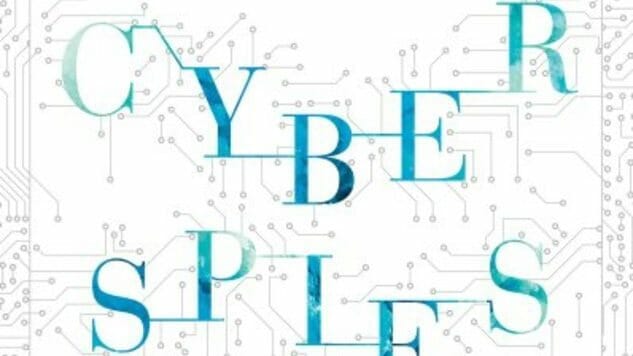Gordon Corera’s Cyberspies Explores the Tumultuous History of Digital Espionage

Society is drowning in an ocean of data. Not only has the internet created an ethereal Library of Alexandria with vast swaths of human knowledge, but the computers we tote in our pockets are absolute data machines. They continuously track our locations, interests, friends and desires, creating personalized prints in a great portrait of information.
This is perhaps the most important ocean ever, and the battle to control it has been the silent engine driving much of Western ingenuity. State and criminal elements find themselves plying the same waters as private companies and individuals, as this world of espionage, surveillance and hacking becomes our own.
Cyberspies, BBC Security Correspondent Gordon Corera’s sweeping history of spying, surveillance and subversion in the digital world, does not tell us to whom the data ocean should belong. The paradox of privacy versus security may never truly be answered—and definitely not to everyone’s satisfaction. What Corera seeks to do instead is to arm us all with that which spies so feverishly desire and hoard: information.
 In that, Corera succeeds. Exhaustively reported and thoroughly annotated, Cyberspies traces the computer’s role in espionage and surveillance from World War I (when “computers” still referred to people) to World War II (when “computers” could first refer to things) into the uneasy, sickeningly lit world post-Edward Snowden.
In that, Corera succeeds. Exhaustively reported and thoroughly annotated, Cyberspies traces the computer’s role in espionage and surveillance from World War I (when “computers” still referred to people) to World War II (when “computers” could first refer to things) into the uneasy, sickeningly lit world post-Edward Snowden.
Beginning with English ship the Alert cutting German telegraph lines in high seas, Corera illuminates the shadowy world of “signals intelligence,” the study and control of your enemies’ various communication channels. It was the desire to crack Axis encrypting machines like Enigma that led to the development of computers as we know them, and it was the insatiable thirst for information and the power to manipulate it which led to the United State’s technological hegemony.
-

-

-

-

-

-

-

-

-

-

-

-

-

-

-

-

-

-

-

-

-

-

-

-

-

-

-

-

-

-

-

-

-

-

-

-

-

-

-

-








































